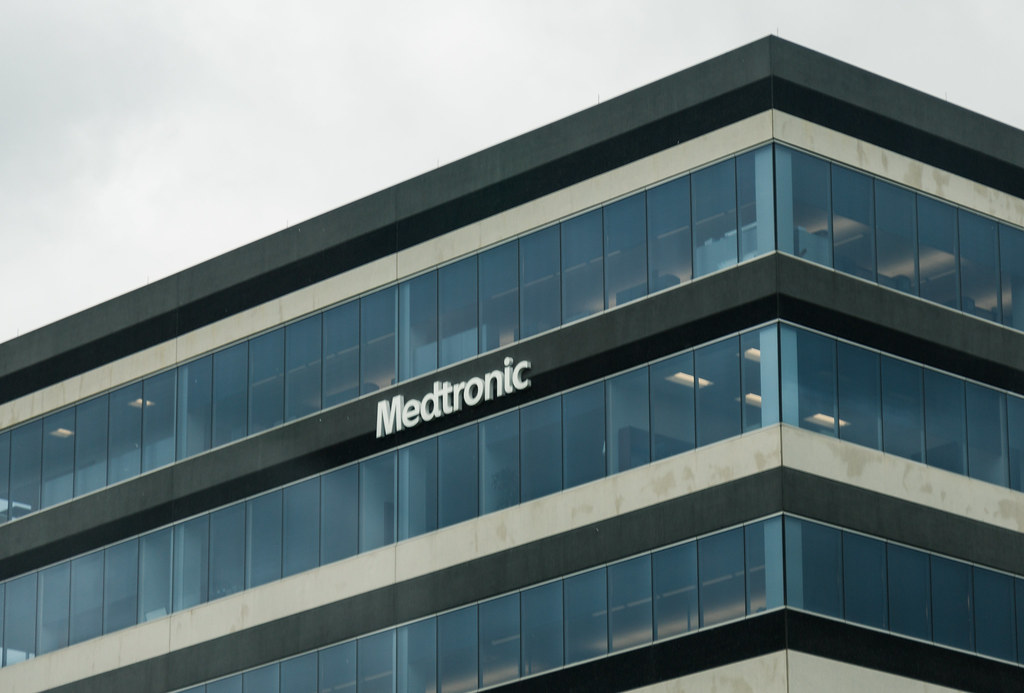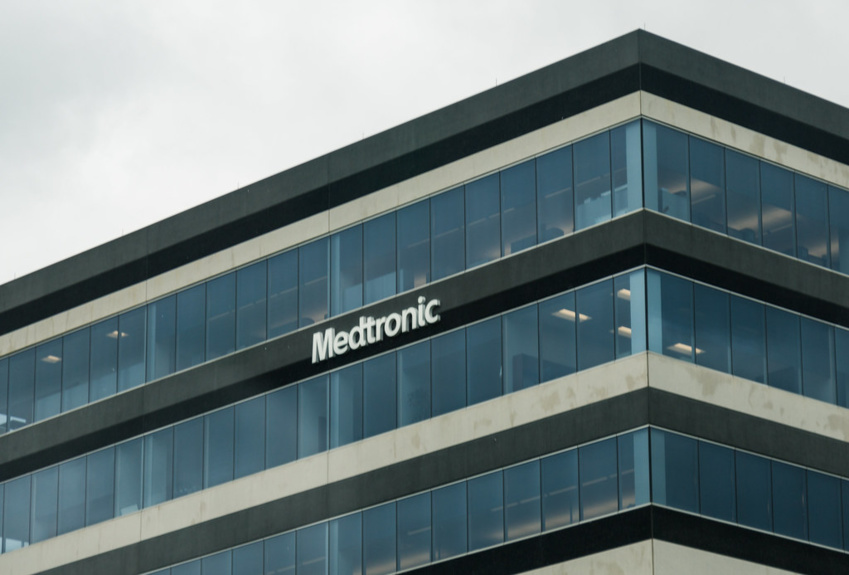Many of the students who attended the 2022 Thurgood Marshall College Fund (TMCF) Leadership Institute in Times Square last month were making their first trip to New York City. Among them was Jordyn Harris. The recent graduate of Delaware State University, one of the historically Black colleges and universities (HBCUs), was there as a recent Medtronic recruit, not just as an alum.
Medtronic was a presidential sponsor of the event for the first time and invested in discovering top Black talent there, specifically from HBCUs. Harris, an Associate Finance Analyst, interned at Medtronic and found out about the company through TMCF.
“I had not heard of Medtronic,” said Harris. “But once I got into the program, they introduced us to medical devices and told us how the company helps patients ― that was fascinating to me because that’s what I want to do with my career.”
Harris became an ambassador four months into her professional career, sharing her Medtronic experience with fellow HBCU students as part of a larger company effort to increase diversity and invest in talent from underrepresented communities.
Trent Agnew, Regional Program Manager from the company's Cranial & Spinal Technologies Operating Unit, agreed to be a Medtronic recruiter. He was consistently impressed by the TMCF candidates' preparedness. Agnew acknowledged that businesses must confront the biases that exist when recruiting from HBCUs.
“I attended the University of Illinois while working for another company in aerospace and there was one HBCU student from Howard University that was a part of the program,” said Agnew. “I noticed they weren’t given as much time with orientation or called upon for certain things and it seemed unfair.”
That treatment had a direct impact on Agnew, and he felt obligated to help change the perception of HBCUs — schools born out of the United States' legacy of segregation that can and do graduate exceptional talent. He renounced his Illinois scholarship and transferred to North Carolina Agricultural and Technical State University, the HBCU from which he graduated.
“That fuel is still burning for me to call upon people to reevaluate those they may underestimate and undervalue,” he said. “And now that we recognize we are bringing in all-stars to this company, we also have to show them what success looks like, prepare them to be great ― in the end it’s a win-win situation.”
TMCF assists over 300,000 students from 47 HBCUs. It is part of the company's larger effort to promote equity and representation. The African Descent Network (ADN), a Medtronic employee resource group, also supports this alliance, even participating in the event's recruitment process.
To that end, the TMCF collaboration aligns with Medtronic's commitment to removing all barriers to opportunity. The company is working to remove equity barriers in the workplace, industry, and communities it serves. Access to economic opportunities is still one of the systemic barriers. This collaboration provides a path to equitable opportunities while also creating a pipeline of diverse talent.
Medtronic was a presidential sponsor of the event for the first time and invested in discovering top Black talent there, specifically from HBCUs. Harris, an Associate Finance Analyst, interned at Medtronic and found out about the company through TMCF.
“I had not heard of Medtronic,” said Harris. “But once I got into the program, they introduced us to medical devices and told us how the company helps patients ― that was fascinating to me because that’s what I want to do with my career.”
Harris became an ambassador four months into her professional career, sharing her Medtronic experience with fellow HBCU students as part of a larger company effort to increase diversity and invest in talent from underrepresented communities.
Trent Agnew, Regional Program Manager from the company's Cranial & Spinal Technologies Operating Unit, agreed to be a Medtronic recruiter. He was consistently impressed by the TMCF candidates' preparedness. Agnew acknowledged that businesses must confront the biases that exist when recruiting from HBCUs.
“I attended the University of Illinois while working for another company in aerospace and there was one HBCU student from Howard University that was a part of the program,” said Agnew. “I noticed they weren’t given as much time with orientation or called upon for certain things and it seemed unfair.”
That treatment had a direct impact on Agnew, and he felt obligated to help change the perception of HBCUs — schools born out of the United States' legacy of segregation that can and do graduate exceptional talent. He renounced his Illinois scholarship and transferred to North Carolina Agricultural and Technical State University, the HBCU from which he graduated.
“That fuel is still burning for me to call upon people to reevaluate those they may underestimate and undervalue,” he said. “And now that we recognize we are bringing in all-stars to this company, we also have to show them what success looks like, prepare them to be great ― in the end it’s a win-win situation.”
TMCF assists over 300,000 students from 47 HBCUs. It is part of the company's larger effort to promote equity and representation. The African Descent Network (ADN), a Medtronic employee resource group, also supports this alliance, even participating in the event's recruitment process.
To that end, the TMCF collaboration aligns with Medtronic's commitment to removing all barriers to opportunity. The company is working to remove equity barriers in the workplace, industry, and communities it serves. Access to economic opportunities is still one of the systemic barriers. This collaboration provides a path to equitable opportunities while also creating a pipeline of diverse talent.


 Medtronic invests in early career development of Black talent
Medtronic invests in early career development of Black talent





 Companies
Companies